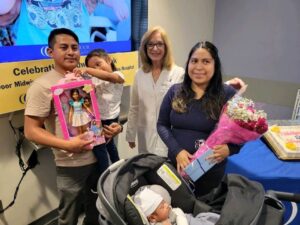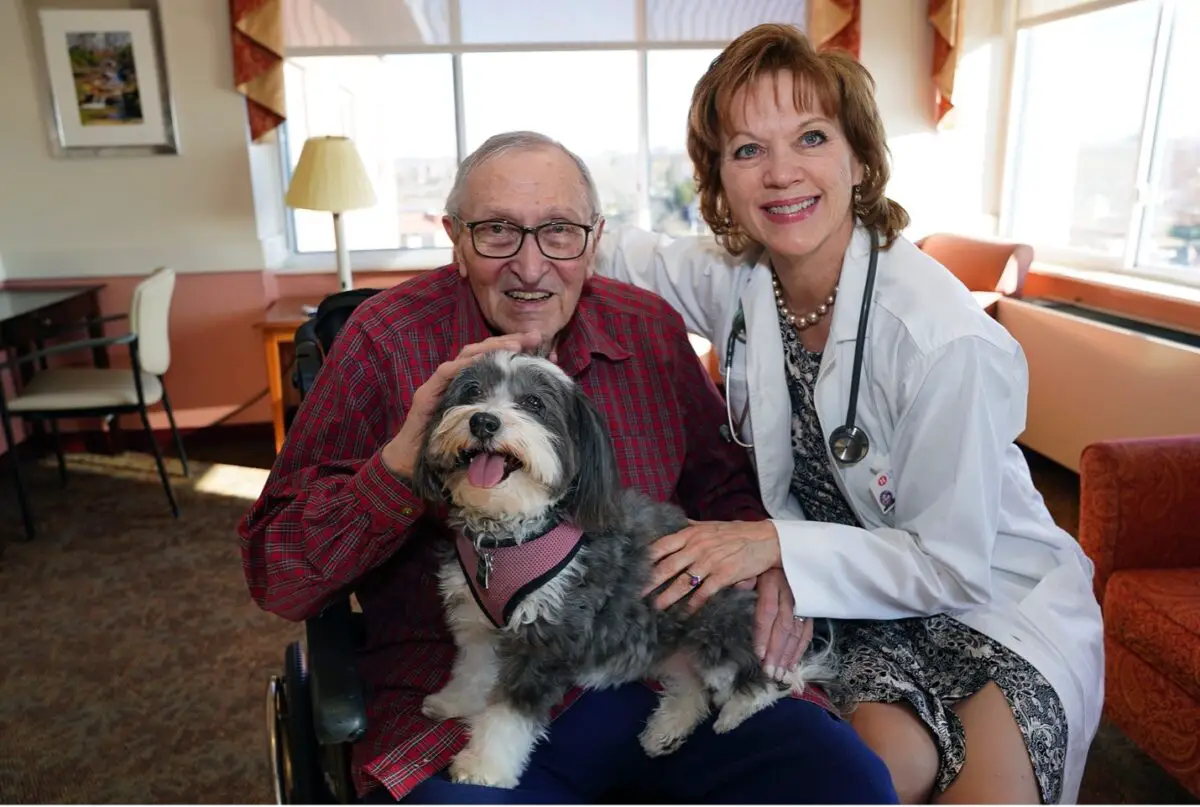“Many native-born Americans are aware of midwives and what they do because of the TV show ‘Call the Midwife,’” said Eileen Conde, a midwife at Open Door Family Medical Center, who has spent nearly three decades working as one after starting her career as a labor and delivery nurse. “It has made a tremendous and positive impact on the average American, capturing what it means to be a midwife – the dedication, passion, exhaustion and emotional aspect it takes and the unexpected emergencies that arise. Meanwhile, our patients, many of whom are recent arrivals, are far more familiar with midwives and believe strongly in what we do.”

On Oct. 6, the midwives at Open Door reached a milestone: officially celebrating the birth of Noah Quito, the 10,000th baby to be delivered by an Open Door midwife since the health center opened its midwife program in September 2003. All of the babies have been delivered at Phelps Memorial Hospital in Sleepy Hollow.
“The midwifery service at Open Door has worked collaboratively with Phelps’ obstetricians for many years providing outstanding obstetrical care to women in our extended community,” said Dr. Larry Mendelowitz, an obstetrician/gynecologist at Phelps Memorial Hospital. “We, at Phelps, feel very fortunate to have such an excellent, experienced and dedicated group of midwives at our institution.”
According to Lisha Coster, chief of Open Door’s midwifery program, midwives have been shown to decrease Cesarean births; reduce inductions and augmentation of labor, perineal lacerations, infant mortality and risk of preterm births; lower the amount of regional anesthesia needed; and increase the satisfaction rate with the quality of care. Midwives are also associated with higher breastfeeding rates.
The team of seven midwives at Open Door, all nurses with advanced college degrees, will see patients from their first prenatal visit through their entire pregnancies – unless they are considered high risk – deliver their babies at a local hospital and meet with them several weeks after they give birth. They work with patients 24/7 and cover all holidays. They meet with patients at all Open Door community sites and deliver an estimated 40 births every month at Phelps, with more complicated cases transferred to high-risk care.
According to the magazine Midwifery Today, the licensing of midwives first occurred in the early 1700s. Since physicians were not formally educated about childbirth, midwives took on the primary responsibility. In the early 1800s, middle-class families started using doctors for childbirth. As anesthesia became widely available in the late 1800s and early 1900s, deliveries began shifting to hospitals and midwives were only used by those who could not afford a doctor. During this time, midwives were perceived as relics of the lower class. That changed later in the 20th century as colleges started introducing formal education for nurse midwives and the concept of family-centered maternity care grew. Still, in the New York metropolitan area, where there is a dearth of schools offering advanced midwifery degrees, there is a shortage of midwives. In fact, Open Door is one of the few health care centers and Phelps one of the only hospitals in the region to offer this service.





















